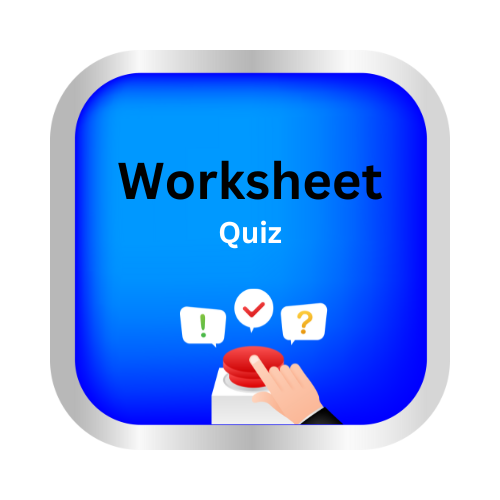List of ” Which sentence uses an antonym? “
| Word | Antonym | Meaning of Word | Meaning of Antonym |
|---|---|---|---|
| hot | cold | having a high temperature | having a low temperature |
| big | small | large in size | little in size |
| happy | sad | feeling joy | feeling sorrow |
| fast | slow | moving quickly | moving with little speed |
| up | down | towards a higher position | towards a lower position |
| open | close | not shut | shut |
| in | out | inside | outside |
| tall | short | having a greater height | having a lesser height |
| light | dark | bright | without light |
| loud | quiet | making a lot of noise | not making noise |
| wet | dry | covered with liquid | free from liquid |
| soft | hard | not firm or solid | solid or firm |
| clean | dirty | not messy | not clean |
| early | late | before the expected time | after the expected time |
| strong | weak | having great power | lacking strength |
| easy | difficult | not hard to do | hard to do |
| high | low | above normal level | below normal level |
| inside | outside | the inner part | the outer part |
| smooth | rough | even surface | not even |
| empty | full | containing nothing | filled completely |
| begin | end | to start | to finish |
| buy | sell | to get something by paying | to give something for money |
| laugh | cry | to show happiness | to shed tears |
| above | below | higher than | lower than |
| new | old | just made or created | having existed for a long time |
| come | go | to move closer | to move away |
| day | night | time when it’s light outside | time when it’s dark |
| give | take | to offer something | to receive something |
| friend | enemy | someone you like | someone you dislike |
| true | false | correct | incorrect |
| near | far | close by | not close |
| win | lose | to succeed | to fail |
| begin | finish | to start | to stop |
| accept | reject | to receive | to not accept |
| brave | cowardly | showing courage | lacking courage |
| cool | warm | a little cold | a little hot |
| early | late | before scheduled | after scheduled |
| enter | exit | to go in | to go out |
| gentle | rough | kind or soft | harsh or uneven |
| hard | soft | solid | not hard |
| healthy | sick | in good health | not feeling well |
| heavy | light | weighing a lot | weighing little |
| kind | mean | being nice | being unkind |
| long | short | a great length | not long |
| loose | tight | not firmly held | firmly held |
| many | few | a lot | not many |
| noisy | quiet | full of noise | silent |
| old | young | aged | not old |
| push | pull | to move away | to draw closer |
| safe | dangerous | free from harm | likely to cause harm |
| thick | thin | wide | narrow |
| top | bottom | highest point | lowest point |
| visible | invisible | can be seen | cannot be seen |
| win | fail | succeed in a game | not succeed |
| above | beneath | higher than | lower than |
| asleep | awake | sleeping | not sleeping |
| arrive | leave | to come | to go |
| attach | detach | to join | to unjoin |
| before | after | earlier in time | later in time |
| bright | dull | full of light | not bright |
| build | destroy | to make | to break |
| careful | careless | showing caution | not cautious |
| certain | uncertain | sure | not sure |
| cheap | expensive | costing little | costing a lot |
| clear | cloudy | not cloudy | full of clouds |
| close | open | to shut | not shut |
| correct | wrong | right | not right |
| deep | shallow | far down | not deep |
| down | up | towards the ground | away from the ground |
| dull | sharp | not pointed | very pointed |
| fancy | plain | very decorative | not fancy |
| far | near | at a distance | close |
| fat | thin | having a lot of flesh | lean |
| full | empty | not empty | without content |
| gain | lose | to get | to not get |
| generous | selfish | giving freely | not sharing |
| glad | sad | happy | unhappy |
| go | stay | to leave | to remain |
| hard | easy | difficult | not difficult |
| humble | proud | not boastful | full of pride |
| join | separate | to connect | to divide |
| large | tiny | very big | very small |
| late | early | not on time | before time |
| lead | follow | to guide | to go after |
| less | more | not much | greater amount |
| light | heavy | not weighing much | weighing a lot |
| little | big | small | large |
| move | stop | to go | to stay still |
| neat | messy | clean and tidy | not clean |
| polite | rude | respectful | disrespectful |
| pretty | ugly | good looking | not good looking |
| quick | slow | fast | not fast |
| quiet | loud | not noisy | full of noise |
| raise | lower | to lift up | to bring down |
| right | left | the opposite side of left | the opposite side of right |
| rise | fall | go upward | go downward |
| safe | unsafe | protected | not protected |
| thick | thin | not narrow | very narrow |
| tidy | untidy | organized | messy |
| true | untrue | not false | false |
| win | lose | to succeed | to not succeed |
| yes | no | agreement | disagreement |
Let’s practice!
Pages: 1 2

